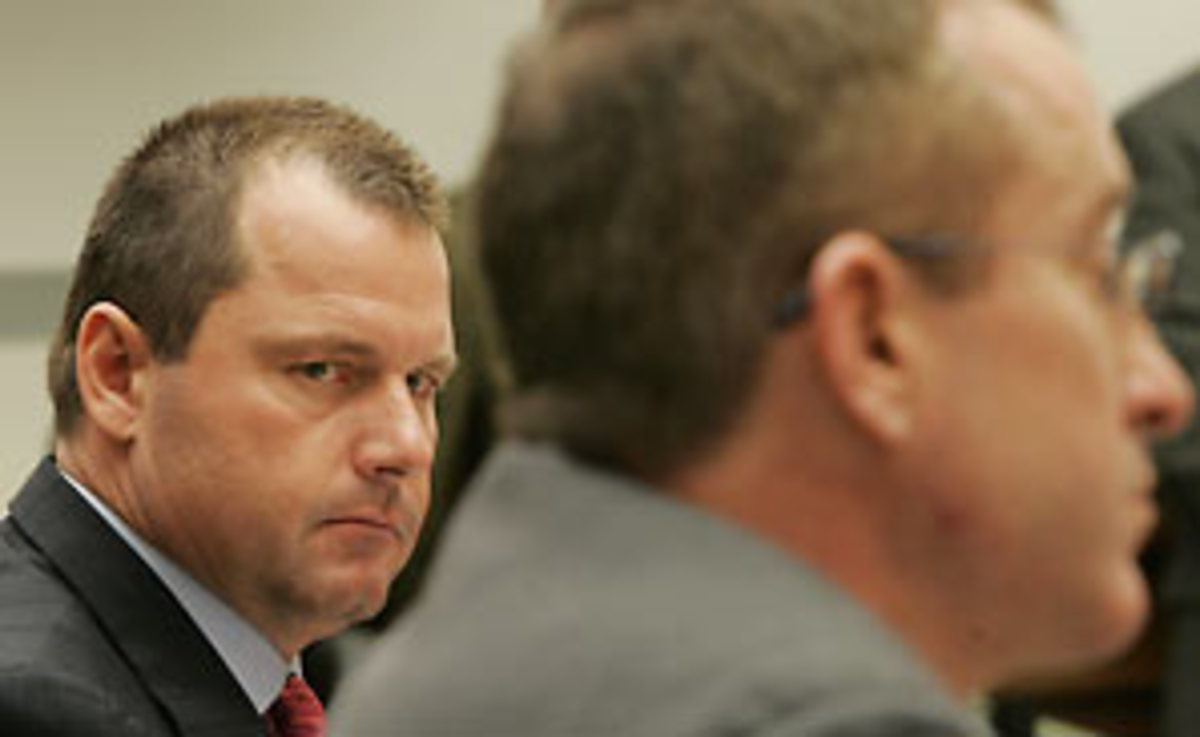Clemens sticks to the script, but is he fighting the wrong battle?
Offering a preview of his defense in a possible criminal trial, Roger Clemens appeared Tuesday morning on ESPN Radio's Mike & Mike in the Morning to reiterate his assertions that he never used steroids and to dismiss damaging claims made about him in American Icon: The Fall of Roger Clemens and the Rise of Steroids in America's Pastime, a new book out today.
Whether he is telling the truth or lying, Clemens -- the target of a grand jury proceeding in Washington, D.C., and a plaintiff in a slander lawsuit in Texas -- has remained consistent in both the style and substance of his denials. Just like in his Jan. 6, 2008, appearance on 60 Minutes and in his much-maligned Feb. 13, 2008, testimony before the House Committee on Oversight and Government Reform, Clemens conceded no ground, offered only absolute and unapologetic rebuttals and tried to explain away factual inconsistencies by impugning other person's memories or motivations. It seems clear that if the legal system will bring Clemens down, he will go down fighting. Then again, if Clemens is like many other brash-sounding persons who are later indicted and brought to trial, his swagger might wane when the prospect of a prison sentence actually confronts him.
Substantively, Clemens attempted to deflect accusatory questions by charging his former trainer and chief accuser, Brian McNamee, with lying to save himself. McNamee, a former New York police officer with a questionable past and the defendant in Clemens' slander lawsuit, has avoided prosecution by cooperating with Major League Baseball and federal authorities in their investigations of Clemens and other players. As Clemens insisted on Tuesday morning, the government's case against him appears to be based primarily on McNamee's physical evidence, which includes syringes that McNamee stored and that purportedly contain both Clemens' DNA and steroids. In January, The Washington Post reported that preliminary DNA tests of syringes provided by McNamee reveal a match with Clemens' blood. The more Clemens undermines the credibility and motivations of McNamee, however, the more a jury would believe that McNamee could have tampered with the syringes. All a jury needs is "reasonable doubt" and Clemens avoids conviction.
Clemens also addressed harmful statements made by his former teammate and close friend, Andy Pettitte. Pettitte swears under oath that in a conversation with Clemens, Clemens admitted that McNamee injected him with human growth hormone. Borrowing a much-discussed and seemingly newly invented word from his Congressional testimony, Clemens claimed that Pettitte simply "misremembered" what Clemens told him. Should Clemens face a criminal trial, it is highly likely that Pettitte would be called to testify about the conversation. During cross-examination Pettitte's testimony could provide a dramatic exchange between the Yankees' pitcher and Clemens' trial counsel.
Clemens also supplied a rationale for why he would never take steroids or any drugs: his fear that it would increase the likelihood of suffering heart problems, of which he has a family history. Clemens specifically cited the fatal heart attack of his step-father, who of course was not biologically related to Clemens but who, in Clemens' defense, may have been close to the legendary pitcher. Even if Clemens is to be believed, the record still indicates that he subjected his body to a variety of other (albeit legal) substances, including Vitamin B12, to enhance his performance.
Clemens' decision to appear on Tuesday's radio program probably did not please his attorneys. Persons who are facing possible indictments and criminal trials are typically discouraged by their counsel from answering questions in the absence of legal protections. In addition, by reminding a national audience of the gravity of his alleged crimes and by unequivocally insisting that he is a victim of others' wrongdoing, Clemens makes it harder for the Justice Department to even consider dropping or moderating its case against him. In that same vein, Clemens' decision to appear on a national radio show suggests that his focus is on the "public trial of his reputation," which, if true, may ultimately harm his prospects in a criminal trial of his legal rights. Put another way, Clemens needs to put aside concerns about the public's disbelief in him and focus on the specific goals of defending himself from criminal conviction.






